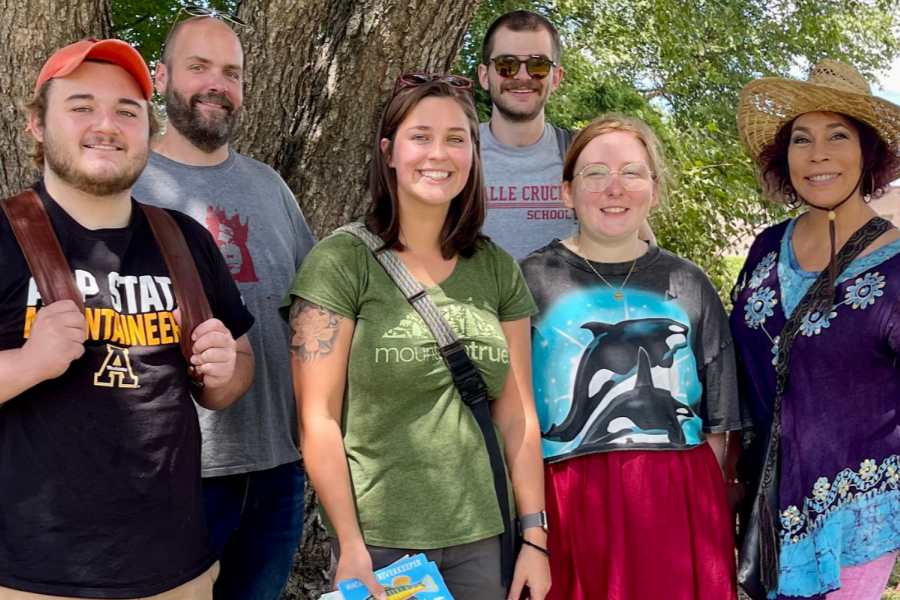Support the Center for Appalachian Studies
The Center for Appalachian Studies at Appalachian State University works to preserve, celebrate, and expand understanding of the history, culture, and future of Appalachia. From sustaining music traditions to fostering student research, your support ensures that these stories and practices continue to thrive.
Why Give?
Your donation makes a difference. Contributions to the Center provide scholarships for students, support groundbreaking research, preserve musical traditions, and expand access to Appalachian voices. Together, we can document, investigate, honor, and enrich the region’s cultural heritage for generations to come.
Ways to Give
You can direct your support to one of our dedicated funds:
- Anne and Alex Bernhardt Endowed Scholarship in Appalachian Music
- Appalachian Studies – NEH Match
- Appalachian Studies Community Fund
- Center for Appalachian Studies General Fund
- Cratis Williams Memorial Graduate Fellowship in Appalachian Studies Endowment
- Dr. Carl A. and Charlotte Ross Scholarship for Appalachian Studies
- Edward J. Cabbell Endowment for Appalachian Studies
- Gordon and Mary Cain Foundation Endowment for Humanities and Science in the Appalachian Region
- Hughlene Bostian Frank Appalachian Regional Writers Endowment
- Lou and Alice Winokur Scholarship Endowment for Appalachian Studies
- Patricia Beaver and Robert White Endowment for Research in Appalachian Studies
- William C. Lindley, Jr. Memorial Scholarship for the Center for Appalachian Studies
- The Doc Watson Endowment for Appalachian Studies
To make a gift, visit our Center for Appalachian Studies fund page, or reach out to the College of Arts and Sciences Development Director, Jasmin McFayden, at mcfaydenja@appstate.edu or 828-262-4019.
To make a gift to the Appalachian Journal, visit our Appalachian Journal fund page.
Featured Fund: The Doc Watson Endowment for Appalachian Studies
Doc Watson shared his love of Appalachian music with the world. To honor his legacy, the Doc Watson Endowment brings musicians and scholars to campus, supports students in Appalachian Music, and preserves the traditions that make our region unique.
This endowment is also part of the National Endowment for the Humanities (NEH) Challenge Grant. Every dollar donated helps secure matching federal support—multiplying the impact of your gift.
Your contribution will help us:
- Record and preserve musicians’ artistry and stories
- Document the diverse traditions that shape Appalachian music
- Support visiting artists and faculty appointments
- Provide research grants and scholarships in Appalachian Music
From ballads and shape-note singing to string bands, gospel, bluegrass, and beyond, these traditions are a vital part of our regional and national story—and they need champions like you.
For more information about the Doc Watson Endowment or how to contribute to Appalachian music programs, contact Katherine Ledford at ledfordle@appstate.edu or 828-262-4089.
Your Gift Makes a Difference
Join Us in Preserving Appalachian Heritage
With your help, the Center for Appalachian Studies can continue to inspire students, strengthen research, and sustain the cultural traditions that make this region extraordinary.
